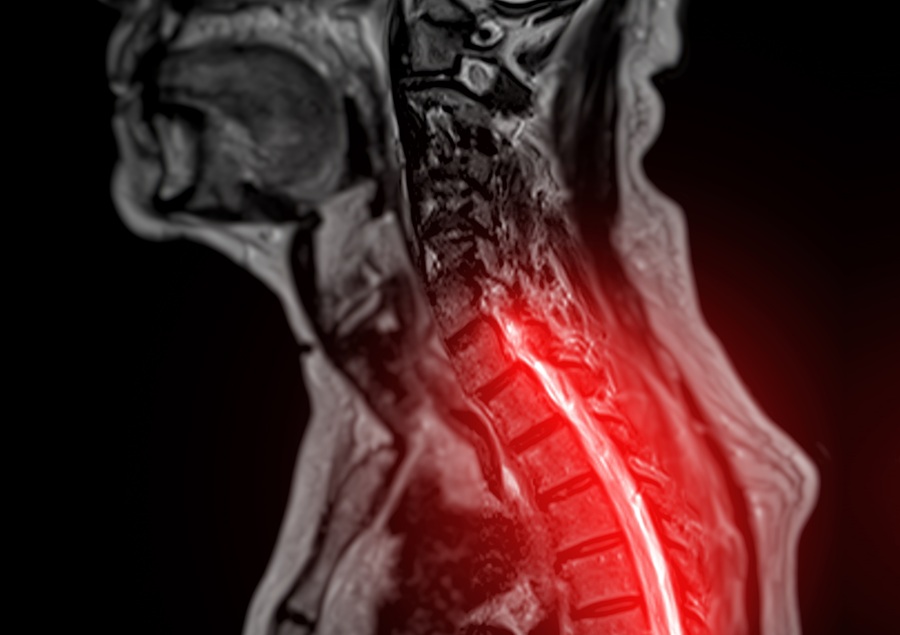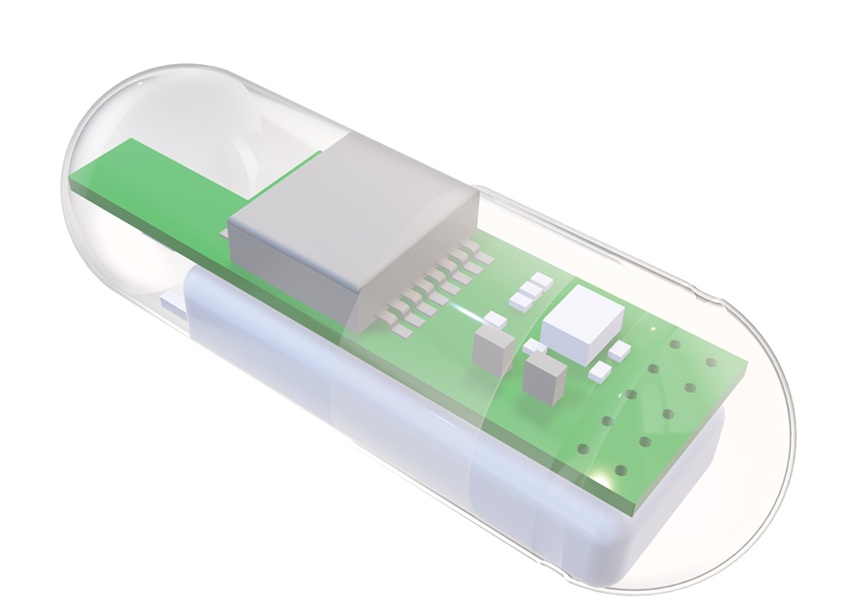AI Tool Accurately Predicts Cancer Three Years Prior to Diagnosis
|
By HospiMedica International staff writers Posted on 24 Aug 2023 |

Over the past five decades, there has been a surge in cases of a specific type of esophageal and stomach cancer - esophageal adenocarcinoma (EAC) and gastric cardia adenocarcinoma (GCA). Both cancers have high fatality rates, although preventive measures can make a difference. Screenings can detect pre-cancerous changes, such as Barrett’s esophagus, often identified in individuals with long-standing gastroesophageal reflux disease (GERD). Although guidelines suggest screening for high-risk patients, many healthcare providers remain unfamiliar with this recommendation. Now, a new artificial intelligence (AI) tool offers accurate predictions for these forms of esophageal and stomach cancer at least three years in advance of a diagnosis.
Researchers at Michigan Medicine (Ann Arbor, MI, USA) have developed an automated tool integrated into the electronic health record (EHR). This tool has the potential to bridge the awareness gap between healthcare providers and patients with an elevated risk of developing EAC and GCA. The researchers employed a specific type of AI for analyzing data related to EAC and GCA rates across more than 10 million U.S. veterans in order to develop and validate the Kettles Esophageal and Cardia Adenocarcinoma prediction tool, or K-ECAN for short.
K-ECAN leverages readily accessible data from the EHR, including patient demographics, weight, prior diagnoses, and routine lab results, to gauge an individual's risk of developing EAC and GCA. Outperforming published guidelines and previously validated prediction tools, K-ECAN accurately predicts cancer at least three years ahead of a diagnosis. Integrating this AI tool into the EHR could automatically notify healthcare providers about patients at a higher risk of developing EAC and GCA.
“Symptoms of GERD, like heartburn, are an important risk factor for esophageal adenocarcinoma,” said Joel Rubenstein, M.D., M.S., professor of internal medicine at Michigan Medicine. “But most people with GERD symptoms will never develop esophageal adenocarcinoma and gastric cardia adenocarcinoma. In addition, roughly half of the patients with this form of cancer never experienced prior GERD symptoms at all. This makes K-ECAN particularly useful because it can identify people who are at elevated risk, regardless of whether they have GERD symptoms or not.”
Related Links:
Michigan Medicine
Channels
Critical Care
view channel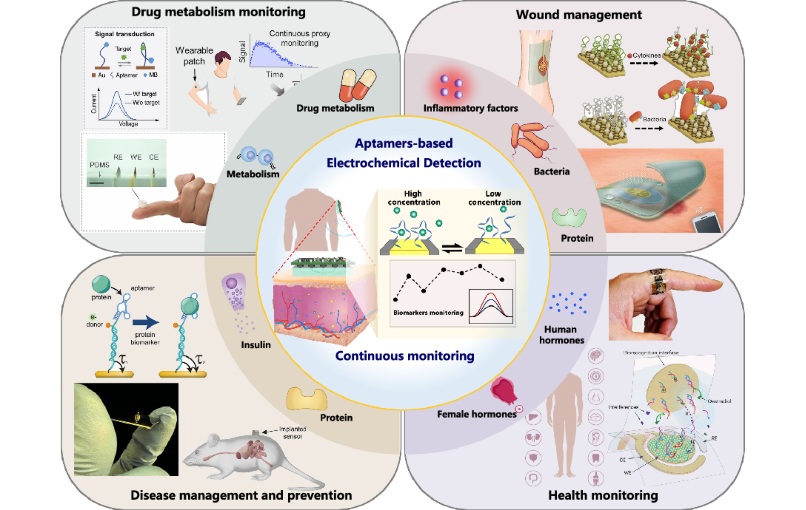
Aptamers Enable Real-Time Biomarker Tracking Without Blood Draws
Continuous monitoring of biomarkers is critical for early disease detection, treatment evaluation, and personalized health management. Yet most clinical tests still rely on invasive, single-point blood... Read more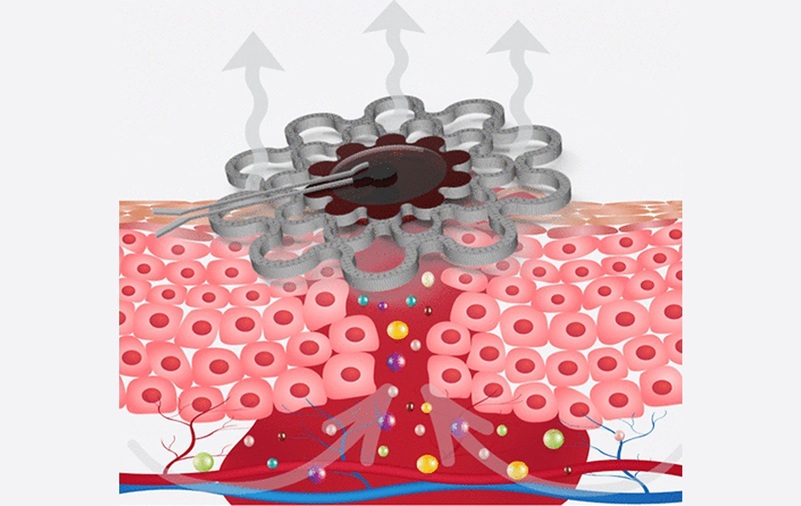
Specialized Dressing with Sensor Monitors pH Levels in Chronic Wounds
Any wound has the potential to become chronic, but the risk is significantly higher in individuals with certain medical conditions. Once a wound becomes chronic, healing slows, complications increase,... Read moreSurgical Techniques
view channel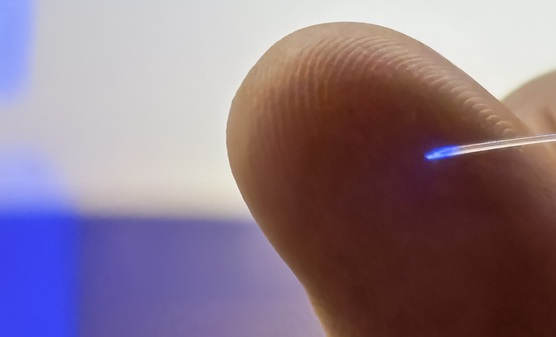
Brain Implant Records Neural Signals and Delivers Precise Medication
Neurological diseases such as epilepsy involve complex interactions across multiple layers of the brain, yet current implants can typically stimulate or record activity from only a single point.... Read moreAI-Based OCT Image Analysis Identifies High-Risk Plaques in Coronary Arteries
Lipid-rich plaques inside coronary arteries are strongly associated with heart attacks and other major cardiac events. While optical coherence tomography (OCT) provides detailed images of vessel structure... Read moreNeural Device Regrows Surrounding Skull After Brain Implantation
Placing electronic implants on the brain typically requires removing a portion of the skull, creating challenges for long-term access and safe closure. Current methods often involve temporarily replacing the skull or securing metal plates, which can lead to complications such as skin erosion and additional surgeries.... Read morePatient Care
view channel
Revolutionary Automatic IV-Line Flushing Device to Enhance Infusion Care
More than 80% of in-hospital patients receive intravenous (IV) therapy. Every dose of IV medicine delivered in a small volume (<250 mL) infusion bag should be followed by subsequent flushing to ensure... Read more
VR Training Tool Combats Contamination of Portable Medical Equipment
Healthcare-associated infections (HAIs) impact one in every 31 patients, cause nearly 100,000 deaths each year, and cost USD 28.4 billion in direct medical expenses. Notably, up to 75% of these infections... Read more
Portable Biosensor Platform to Reduce Hospital-Acquired Infections
Approximately 4 million patients in the European Union acquire healthcare-associated infections (HAIs) or nosocomial infections each year, with around 37,000 deaths directly resulting from these infections,... Read moreFirst-Of-Its-Kind Portable Germicidal Light Technology Disinfects High-Touch Clinical Surfaces in Seconds
Reducing healthcare-acquired infections (HAIs) remains a pressing issue within global healthcare systems. In the United States alone, 1.7 million patients contract HAIs annually, leading to approximately... Read moreHealth IT
view channel
EMR-Based Tool Predicts Graft Failure After Kidney Transplant
Kidney transplantation offers patients with end-stage kidney disease longer survival and better quality of life than dialysis, yet graft failure remains a major challenge. Although a successful transplant... Read more
Printable Molecule-Selective Nanoparticles Enable Mass Production of Wearable Biosensors
The future of medicine is likely to focus on the personalization of healthcare—understanding exactly what an individual requires and delivering the appropriate combination of nutrients, metabolites, and... Read moreBusiness
view channel
Medtronic to Acquire Coronary Artery Medtech Company CathWorks
Medtronic plc (Galway, Ireland) has announced that it will exercise its option to acquire CathWorks (Kfar Saba, Israel), a privately held medical device company, which aims to transform how coronary artery... Read more
Medtronic and Mindray Expand Strategic Partnership to Ambulatory Surgery Centers in the U.S.
Mindray North America and Medtronic have expanded their strategic partnership to bring integrated patient monitoring solutions to ambulatory surgery centers across the United States. The collaboration... Read more
FDA Clearance Expands Robotic Options for Minimally Invasive Heart Surgery
Cardiovascular disease remains the world’s leading cause of death, with nearly 18 million fatalities each year, and more than two million patients undergo open-heart surgery annually, most involving sternotomy.... Read more











